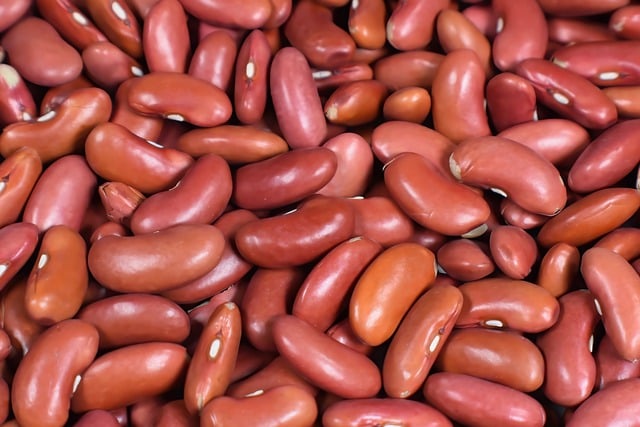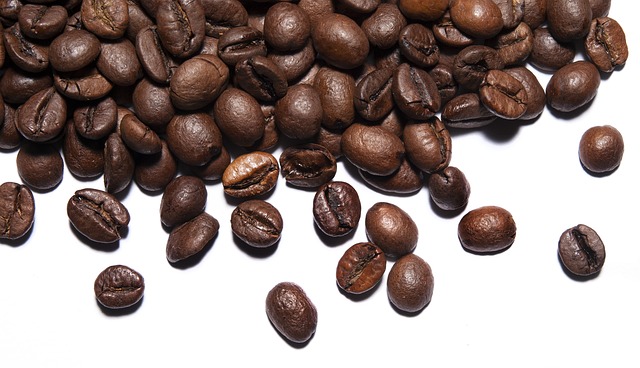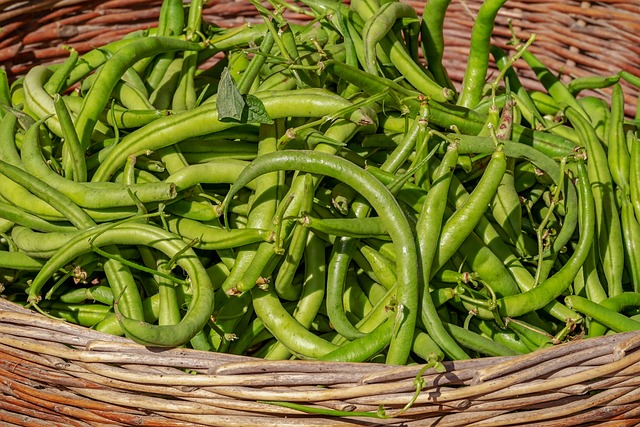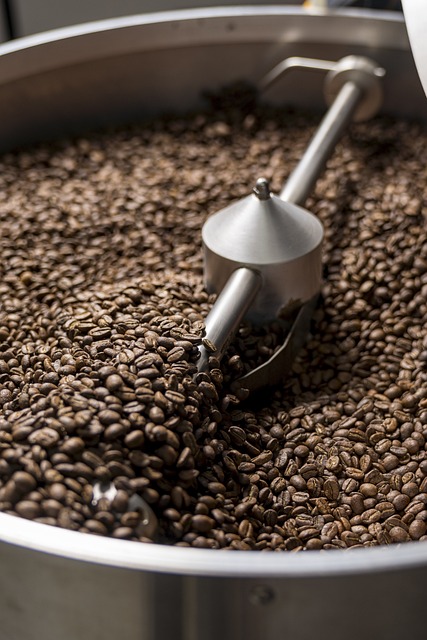Kidney beans are a highly nutritious legume that offer significant health benefits as part of a plant-based diet. They're rich in fiber and protein, which contribute to satiety, digestive health, and weight management while also aiding in blood sugar control, making them particularly beneficial for individuals with dietary restrictions or diabetes. To maximize their nutritional value, they should be soaked overnight, then cooked until tender. This preparation method not only enhances their flavor but also helps to remove antinutrients that could inhibit nutrient absorption. Kidney beans are also effective in managing cholesterol levels by binding with bile acids and lowering LDL cholesterol, thus reducing the risk of heart disease. Additionally, they can be incorporated into a variety of dishes, including chili and salads, offering a versatile and tasty option for those on a plant-based diet. Other legumes like black beans, lentils, and chickpeas also provide similar health advantages and can be prepared in different ways to maintain a nutrient-diverse intake. Overall, incorporating kidney beans into your meals can significantly improve overall diet quality and contribute positively to health outcomes by supporting cholesterol management and blood sugar control.
When contemplating the world of legumes, one might wonder about the nuances that set kidney beans apart from their peers. This article delves into the unique attributes of kidney beans, contrasting them with other common beans to highlight their health benefits, cooking techniques, and nutritional profiles. From their cholesterol-lowering properties to their role in blood sugar control and integration into a plant-based diet, kidney beans emerge as a versatile and nutritious choice for health-conscious individuals. Join us as we explore the myriad ways kidney beans stand out, from their fiber content to their anthocyanin antioxidants, and how they can be prepared to maximize these benefits. Whether you’re a seasoned chef or new to cooking with beans, this article offers insights for enhancing your diet with these nutritional powerhouses.
- Unraveling the Nutritional Profiles: Kidney Beans vs. Other Beans
- Kidney Beans and Cholesterol: A Heart-Healthy Relationship
- The Impact of Kidney Beans on Blood Sugar Control
- How to Cook Kidney Beans: Techniques and Recipes for Optimal Health Benefits
Unraveling the Nutritional Profiles: Kidney Beans vs. Other Beans

Kidney beans, renowned for their vibrant hue and nutritional density, offer a wealth of health benefits that position them as a standout choice within the legume family. Rich in plant-based proteins and fiber, kidney beans contribute to feeling fuller for longer, which is beneficial for those following a plant-based diet aimed at weight management or improved digestive health. They are particularly lauded for their impact on blood sugar control, as their high fiber content slows the rate of glucose absorption. Including kidney beans in your diet can be effortless and delicious; they are versatile in various recipes from chili to salads, and how to cook them is straightforward: simply soak overnight, boil until tender, and then drain and rinse.
Comparatively, other beans like black beans, lentils, and chickpeas also offer a suite of health benefits, including cholesterol-lowering effects. Black beans are another excellent source of protein and fiber, making them equally beneficial for blood sugar control and weight management. Lentils are known for their high levels of nutrients and minerals, including folate, iron, and potassium. Chickpeas, commonly used in hummus and other Mediterranean dishes, are rich in plant-based proteins and provide a substantial amount of fiber, which is crucial for digestive health. Each of these beans can be incorporated into a balanced diet to reap their unique benefits. Like kidney beans, they can be prepared in various ways; steaming, roasting, or adding them to soups and stews are some of the most popular methods to enjoy their distinctive flavors and nutritional profiles. Regardless of your choice, integrating beans into meals can significantly enhance overall diet quality and contribute to better health outcomes.
Kidney Beans and Cholesterol: A Heart-Healthy Relationship

inclusion of kidney beans in a plant-based diet has been associated with several health benefits. These legumes are particularly renowned for their role in managing cholesterol levels, making them a heart-healthy addition to any meal plan. Studies have shown that the soluble fiber found in kidney beans can bind with bile acids in the digestive system, which are primarily made from cholesterol. This binding action helps reduce the reabsorption of cholesterol into the bloodstream, thereby lowering overall cholesterol levels and potentially reducing the risk of cardiovascular disease. For those on a plant-based diet seeking to harness these health benefits, incorporating kidney beans into their cooking routine is straightforward. They can be prepared in a myriad of ways: boiled, steamed, roasted, or included in salads, soups, and stews. One popular method for preparing kidney beans is to soak them overnight and then cook them until tender, which not only enhances their digestibility but also maximizes their nutritional benefits. Additionally, kidney beans are a source of complex carbohydrates, which contribute to blood sugar control. This makes them an excellent option for individuals with diabetes or those looking to maintain steady blood glucose levels. By including kidney beans as part of a balanced diet and combining them with other low-glycemic index foods, one can effectively manage their blood sugar, further underscoring the bean’s place as a cornerstone in healthy eating habits.
The Impact of Kidney Beans on Blood Sugar Control

Including kidney beans in a regular diet can significantly contribute to effective blood sugar control due to their low glycemic index (GI) score, which means they have a minimal impact on blood glucose levels. This characteristic is particularly beneficial for individuals with diabetes or those at risk of developing the condition. Kidney beans are rich in soluble fiber, particularly viscous fiber, which can slow down the digestion process and moderate the absorption of sugar into the bloodstream. This fiber-rich composition not only aids in maintaining stable blood sugar levels but also promotes gut health, further enhancing overall metabolic well-being.
Moreover, incorporating kidney beans into a plant-based diet can be a strategic move for those looking to improve their cholesterol profiles. Studies have shown that legumes like kidney beans can help reduce low-density lipoprotein (LDL) or “bad” cholesterol without affecting high-density lipoprotein (HDL) or “good” cholesterol levels. The abundance of protein and the absence of cholesterol in kidney beans make them an excellent replacement for animal proteins, which are often high in saturated fats that contribute to unhealthy cholesterol levels. When preparing kidney beans, it’s important to follow proper cooking methods to maximize their health benefits while ensuring they are safe to consume; improper handling and undercooking can lead to potential health risks. Boiling or soaking kidney beans before cooking can reduce antinutrients like lectins and phytates that might otherwise interfere with nutrient absorption. Including kidney beans in a variety of dishes, such as salads, stews, and soups as part of a well-rounded plant-based diet, can contribute to improved heart health, better blood sugar control, and a host of other health benefits.
How to Cook Kidney Beans: Techniques and Recipes for Optimal Health Benefits

Incorporating kidney beans into your diet can offer numerous health benefits, including aiding in cholesterol management and blood sugar control. To maximize these advantages while preparing kidney beans, it’s important to focus on techniques that preserve their nutritional content. Soaking kidney beans overnight and discarding the soaking water can reduce antinutrients like phytates, which may otherwise interfere with nutrient absorption. After soaking, rinse the beans thoroughly and cook them in fresh water until tender. A traditional method involves simmering the beans with enough water to cover them until they are soft, which typically takes about 1-3 hours, depending on the size and age of the beans. For a healthier twist, consider using low-sodium or no-added-salt vegetable or chicken broth for additional flavor and nutrients during cooking.
For those adhering to a plant-based diet, kidney beans are an excellent protein source that can be included in a variety of recipes to enhance meal diversity and nutrition. One popular dish that showcases kidney beans is the classic chili, which not only highlights their rich flavor but also blends them with vegetables, tomatoes, and spices that complement their health benefits. Another recipe for optimal health is incorporating kidney beans into salads, where they provide a hearty base alongside leafy greens, nuts, seeds, and a vinaigrette dressing. These dishes not only align with a plant-based diet but also contribute to better cholesterol levels and blood sugar control, making them beneficial for individuals with diabetes or those looking to maintain cardiovascular health. Always ensure that the beans are fully cooked to eliminate any potential harmful bacteria and to optimize their digestibility and nutrient availability.
In conclusion, the nutritional and health benefits of kidney beans set them apart as a standout choice within the bean family. Their robust profile in fiber, protein, and antioxidants makes them an excellent addition to a plant-based diet, contributing to heart health by managing cholesterol levels. Moreover, kidney beans’ ability to support blood sugar control offers a compelling reason for their inclusion in regular meal planning. The variety of cooking techniques and recipes available enhances their health benefits, allowing for versatile and nutritious incorporation into diets aiming for optimal well-being. Whether you’re looking to improve your heart health or manage your blood sugar, kidney beans offer a delicious and nutritious solution.



